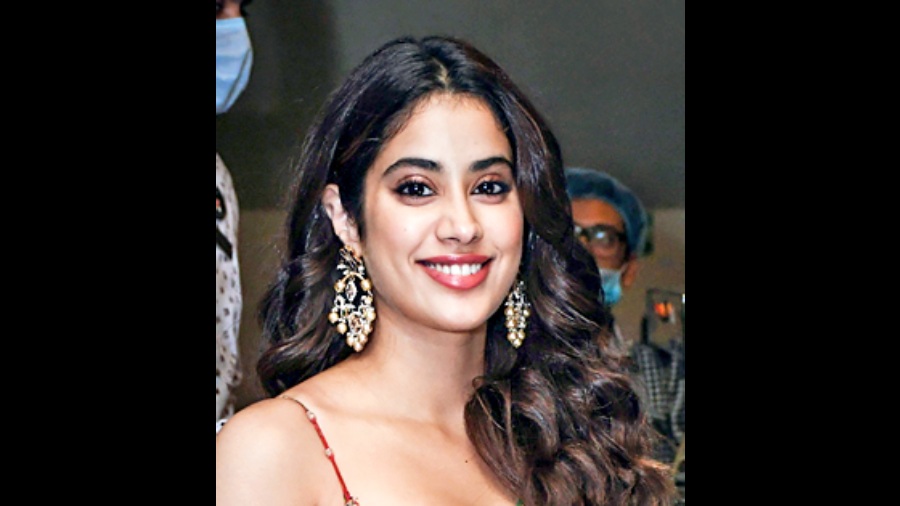There’s a tinge of vulnerability that resides in her eyes. One isn’t sure if it’s the manifestation of the early loss of a close, loved one. But it was there when she looked troubled over caste differences in her debut film, Dhadak. It appeared when she faced a gender battle as Gunjan Saxena. It was evident even when a ghoul yearned for desirability in the horror-comedy film, Roohi. It is there once again when she’s trapped in a freezer in her latest film, Mili.
Right now, the box office seems to be in a deep freeze with a spate of OTT-tailored films being forced into empty theatres. But if you do catch a show of Mili, that touch of defencelessness will be inescapable.
It’s present in Janhvi Kapoor, the person too.
There is a pre-determined view of a celebrity kid. That the foot in the door entitles her to easy stardom. That she’s here only because cinema is the family business, like law is to the Chandrachud family or politics to the Gandhis.
But the privilege also makes her vulnerable to darts, a privilege so relentlessly pulled out, paraded and attacked that the possibility of another side to why she chose to be an actor is rarely considered. The window to her view is opened when she’s asked, “Does it get easier with every film?” and she laughs in response, “I’m making sure that it doesn’t with the kind of films I’m choosing.”
She adds, “That’s not why you become an actor. It’s not supposed to be a comfortable job. It’s an art form where you’re supposed to bare your soul and give the audience an experience that hopefully moves them.”
Lost in today’s Instagram world of dress up and flaunt is that a girl as young as her has traded glamour to play a smalltown girl in her debut film, got into a pilot’s uniform in her second, turned an unattractive ghost with outlandish prosthetics in her third and sported a frostbitten face and a body wrapped in plastic in her latest.
There is, she believes, an emotional investment in choosing to be an actor, going deeper and beyond being the only option she’s ever known. “It hurts my ego,” she says, “to reduce it to that’s all you were exposed to as a kid. It feels much more than that.”
Cinema was a magnet. “The idea of being so consumed by your art was so attractive to me, it was something that I always looked up to,” she explains. “I grew up on stories of my mother’s mom saying that she shot Kaate nahi katte (the unforgettable blue sari dance by Sridevi in Mr India) with a 103-degree fever. Or she was told that her father passed away just before shooting a comedy scene which she had to finish before she left. It was so inspiring that someone could love something so much that they could do all of these things for it. I heard stories of Daniel Day-Lewis fracturing his ribcage while doing My Left Foot. It’s not just about serious cinema. When Jack Lemon makes you laugh in The Apartment and you feel bad for him, it transcends reality, it moves you, and that’s what I want to do with my work.”
In that quest, she subjects herself to self-appraisement, conceding that diverse opinions on her debut performance were valid. “I was very divided in my opinion on my own performance,” she discloses.
The conversation gets lighter when it moves to Janhvi’s father, Boney Kapoor, who’s making his debut in Luv Ranjan’s film as Ranbir Kapoor’s screen-dad early next year.
What would Sridevi’s reaction have been to his debut?
“I think she would’ve been stressed,” she guesses. “You know how there are ‘momagers’ who manage their daughters? I think she would’ve been a ‘wife-ager’.”
She further remarks, “Without being an actor, he’s the biggest star in the family. Now that he’s actually doing a film, I don’t think the family or the world is prepared for the mega star, Boney Kapoor.”
Dads don’t need PR agencies when they have a beti.
Bharathi S. Pradhan is a senior journalist and author











